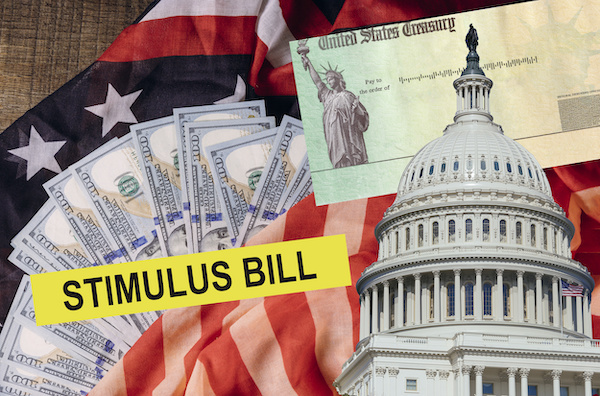Planning An Uncertain Stimulus In the Pandemic

As I write this column the question whether the U.S. Congress will pass a second stimulus package during the COVID-19 pandemic is still uncertain. While Democrats and Republicans both report a deal is near, the clock ticks and both a proposed $900 billion pandemic relief bill and a potential government shutdown at midnight are on the table. Senate Majority Leader Mitch McConnell has suggested that negotiations might continue through the weekend.
In conditions like this, not to mention the dramatic changes to tax laws and spending policies that have already occurred in the past few years, it bears mentioning that it is extremely difficult for average Americans to plan. It also bears noting that, more so than in the past, many seniors continue to hold jobs either because they want to continue working or because pensions from employers have largely been replaced by personal savings or income is insufficient and therefore seniors are also affected by provisions regarding unemployment.
Here are some of the issues on the table for an expected second COVID-19 relief package.
Payment of a one-time $600 stimulus to Americans with incomes within certain guidelines similar to the provision enacted earlier in the pandemic for a one time $1,200 stimulus;
Funds for distribution of COVID-19 vaccines which were recently approved;
Expansion and/or extension of unemployment benefits for a time not currently specified;
Potential reinstatement of federal supplemental jobless payments to unemployed individuals but at a lower amount, possibly $300 per week rather than the $600 per week previously authorized by the federal government.
These are not the only issues confronting Americans. With large numbers of Americans unemployed, housing relief and food insufficiency problems have come to the front. Under the CARES Act, passed earlier this year, two forms of relief went into effect for some homeowners with federally or Fannie Mae or Freddie Mac backed mortgages. First, according to the federal Consumer Financial Protection Bureau, lenders and loan servicers for these mortgages can be prohibited from foreclosing until at least December 31, 2020. The Bureau’s statement on its website is “[s]pecifically, the CARES Act and the guidance from the GSE’s, the FHA, the VA, and the USDA, prohibit lenders and servicers from beginning a judicial or non-judicial foreclosure against you, or from finalizing a foreclosure judgment or sale. This protection began on March 18, 2020, and extends through at least December 31, 2020
https://www.consumerfinance.gov/coronavirus/mortgage-and-housing-assistance/mortgage .
The second type of protection described by the Consumer Financial Protection Bureau is forbearance which is described as follows: “Forbearance…is when your mortgage servicer or lender allows you to pause (suspend) or reduce your mortgage payments for a limited period of time while you regain your financial footing”
It is specially noted that forbearance does not mean that payments are “forgiven or erased.” It means they are deferred or delayed. The guidance here is “ …[i]f you experience financial hardship due to the coronavirus pandemic, you have a right to request and obtain a forbearance for up to 180 days. You also have the right to request and obtain an extension for up to another 180 days (for a total of up to 360 days). You must contact your loan servicer to request this forbearance. There will be no additional fees, penalties or additional interest (beyond scheduled amounts) added to your account. You do not need to submit additional documentation to qualify other than your clainm to have a pandemic-related financial hardship. Some federally backed mortgages have a December 31, 2020 deadline for requesting an initial forbearance…” id.
Note the significance regarding both foreclosure and forbearance of the December 31, 2020 date. What happens after December 31, 2020 also needs to be addressed. For mortgage borrowers affected by COVID-19 the uncertainty generated by the deadline can be harrowing. Will mortgage lenders be free to begin mortgage foreclosures after December 31? Will borrowers still unemployed be able to catch up on their forbearance amounts?
A similar issue regarding student loans has been addressed. The federal student loan administrative forbearance period, the pause in interest accrual and the suspension of collections activity has already been extended until January 31, 2021.
About the Author Janet Colliton
Esquire, Colliton Law Associates, P.C. Janet Colliton has practiced law for over 38 years, 37 of them in Chester County, Pennsylvania, a suburb of Philadelphia. Her practice, Colliton Law Associates, PC, is limited to elder law, Medicaid, including advice, applications and appeals, and other benefits planning including Veterans benefits, life care and special needs planning, guardianships, retirement, and estate planning and administration.
